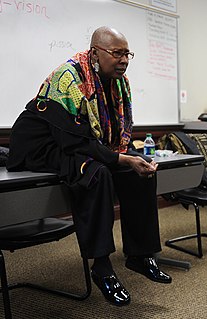A Quote by Shinichi Suzuki
Related Quotes
My philosophy is that I am a friend of the children. I don't think anyone should see them as pitiable subjects or charity. That is old people's rhetoric. People often relate childish behaviour to stupidity or foolishness. This mindset needs to change. I want to level the playing field where I can learn from the children. Something I can learn from children is transparency. They are innocent, straightforward, and have no biases. I relate children to simplicity and I think that my friendship with children has a much deeper meaning than others.
Playing games with agreed upon rules helps children learn to live by rules, establish the delicate balance between competition andcooperation, between fair play and justice and exploitation and abuse of these for personal gain. It helps them learn to manage the warmth of winning and the hurt of losing; it helps them to believe that there will be another chance to win the next time.
Although adults have a role to play in teaching social skills to children, it is often best that they play it unobtrusively. In particular, adults must guard against embarrassing unskilled children by correcting them too publicly and against labeling children as shy in ways that may lead the children to see themselves in just that way.
As children's inquiries are not to be slighted, so also great care is to be taken, that they never receive deceitful and illuding answers. They easily perceive when they are slighted or deceived, and quickly learn the trick of neglect, dissimulation, and falsehood, which they observe others to make use of. We are not to intrench upon truth in any conversation, but least of all with children; since, if we play false with them, we not only deceive their expectation, and hinder their knowledge, but corrupt their innocence, and teach them the worst of vices.
Imagine that you wanted your children to learn the names of all their cousins, aunts and uncles. But you never actually let them meet or play with them. You just showed them pictures of them, and told them to memorize their names. Each day you'd have them recite the names, over and over again. You'd say, "OK, this is a picture of your great-aunt Beatrice. Her husband was your great-uncle Earnie. They had three children, your uncles Harpo, Zeppo, and Gummo. Harpo married your aunt Leonie ... yadda, yadda, yadda."
Implanting spiritual ideas in children is very important. Many people live their entire lives according to the concepts that are implanted in them in childhood. When children learn they will get the most attention and love through doing constructive things, they will tend to stop doing destructive things. Most important of all, remember that children learn through example. No matter what you say it is what you do that will have an influence on them.
Children who are respected learn respect. Children who are cared for learn to care for those weaker than themselves. Children who are loved for what they are cannot learn intolerance. In an environment such as this, they will develop their own ideals, which can be nothing other than humane, since they grew out of the experience of love.



































